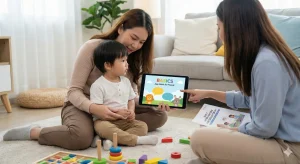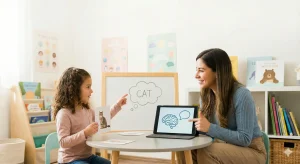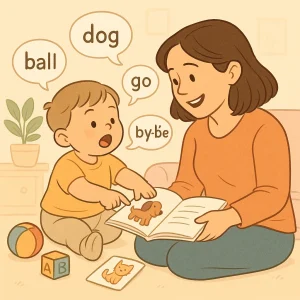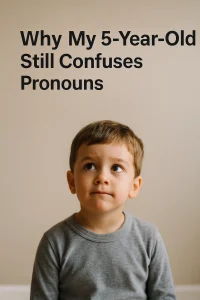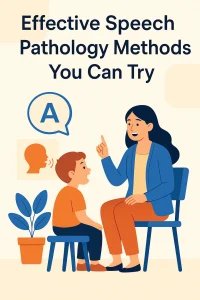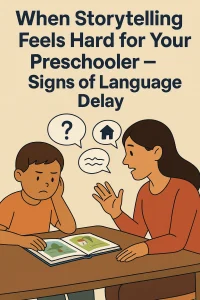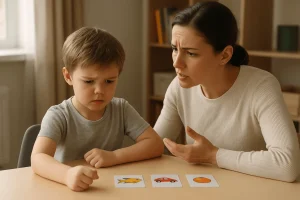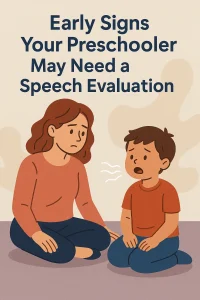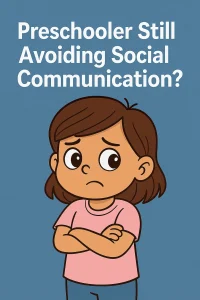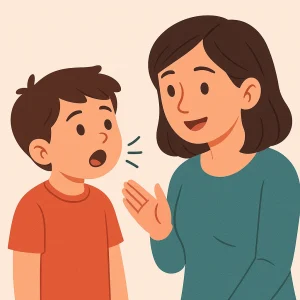12 Fun Activities to Boost Your Child’s Speech & Language
By Rajini D
Last Updated: February 16, 2024
Speech and language skills are cornerstones of early childhood development, influencing everything from social interactions to academic success. But how do we support these critical skills in a way that’s both effective and enjoyable for our little ones?
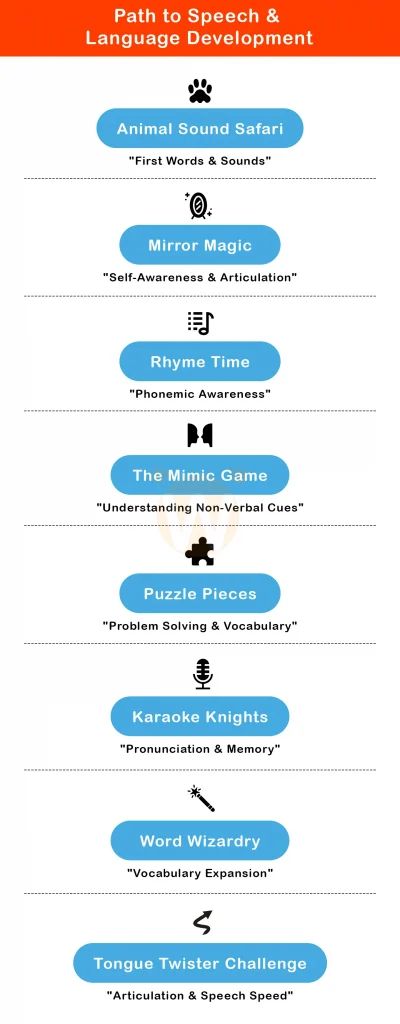
The answer lies in the magic of play. Fun activities are not just a source of entertainment; they are powerful tools that naturally enhance speech and language development. Through play, children explore new sounds, words, and ways of expressing themselves, all within a stress-free and engaging environment. These activities encourage experimentation and repetition, which are key to mastering language skills. Plus, they provide an excellent opportunity for bonding and creating precious memories while learning.
Embarking on our list of “12 Cool Activities to Power Up Speech & Language in Children,” let’s dive into two engaging and playful strategies designed to nurture your child’s communication skills.
Also Read: Understanding Online Speech Therapy for Toddlers: A Guide for Parents
Speech & Language Milestones and Activities
| Age Range | Milestones | Suggested Activities | Activity Description |
|---|---|---|---|
| 0-2 Years | Babbling, first words | Animal Sound Safari, Mirror Magic | Animal Sound Safari: Engage with animal sounds to encourage early word imitation. Mirror Magic: Use a mirror to help children see and mimic facial expressions, aiding in the articulation of sounds and words. |
| 2-3 Years | Two-word phrases, vocabulary expansion | Rhyme Time, The Mimic Game | Rhyme Time: Introduce simple rhymes to boost phonemic awareness and vocabulary. The Mimic Game: Encourage imitation of actions and sounds to improve verbal and non-verbal communication skills. |
| 4-5 Years | Storytelling, advanced vocabulary | Word Wizardry, Tongue Twister Challenge | Word Wizardry: Explore homonyms and synonyms through games, expanding vocabulary and comprehension. Tongue Twister Challenge: Practice tongue twisters to refine pronunciation, articulation, and speech speed. |
Animal Sound Safari
One of the most enchanting speech and language activities for children involves a journey through the wilds of your living room or backyard with an Animal Sound Safari.
This activity doesn’t require any special equipment – just animal picture cards or toys and your imagination. Show your child the picture or toy of an animal, and together, make the sounds that the animal makes. A lion roars, a snake hisses, and a cow says moo. It’s a simple yet profoundly effective way to engage your child in speech development, mimicking the diverse sounds of the animal kingdom. This activity not only helps in the articulation of different sounds but also enhances vocabulary as children learn the names of various animals. Plus, it’s a roaring good time that brings the thrill of a safari right into your home.
Read more about how these foundational sounds play into larger milestones in Speech and Language Milestones 0 to 12 Months.
Storytime With a Twist
Moving from the jungles and farms to the magical realms of stories, Storytime With a Twist takes the traditional reading time to a whole new level. Incorporating language-boosting activities and speech development games into storytime can transform it into an interactive adventure.
Instead of simply reading a book from start to finish, add sound effects for the wind blowing, doors creaking, or characters speaking. Use different voice inflections to represent different characters, and pause to ask your child what they think will happen next. This not only makes the story more engaging but also encourages your child to think critically and express their predictions, boosting their language skills and imagination. Whether it’s the whisper of a fairy’s wings or the mighty roar of a dragon, these soundscapes enrich the storytelling experience, making each book a new adventure to explore together.
For tips on making screen time educational and engaging, check out our insights on How Does Screen Time Affect Your Child’s Development?
Expressive Art Gallery
Art isn’t just about colors and shapes; it’s a vibrant medium for communication. That’s why our third activity, the Expressive Art Gallery, stands out as one of the most creative speech development activities for preschoolers.
Here, children use drawing and painting to express themselves, narrating stories behind their creations or describing the emotions and scenes they’ve depicted. This activity encourages children to put their thoughts into words, expanding their vocabulary and helping them articulate their feelings and ideas more clearly. Whether it’s a sunny day painted in bright yellows or a story of a brave knight, every artwork becomes a starting point for engaging conversations.
Discover more about the therapeutic effects of art in Therapies Offered to Autistic Patients.
Color and Shape Detectives
Our fourth activity transforms an ordinary walk or drive into an extraordinary adventure with Color and Shape Detectives. Recognized as one of the best activities for enhancing kids’ language skills, this game invites children to observe their surroundings closely, identifying and naming the colors and shapes they see.
“Can you find something red?” or “How many circles can we spot?” are questions that turn the environment into a playful classroom. This activity is not just about recognizing colors and shapes; it’s an interactive way to enhance vocabulary, encourage curiosity, and develop observation skills. Plus, it makes every outing an educational expedition, proving that learning can happen anywhere and everywhere.
Explore our article on Color Preferences in Children with Autism for related insights on sensory experiences.
Sing-Along Sessions
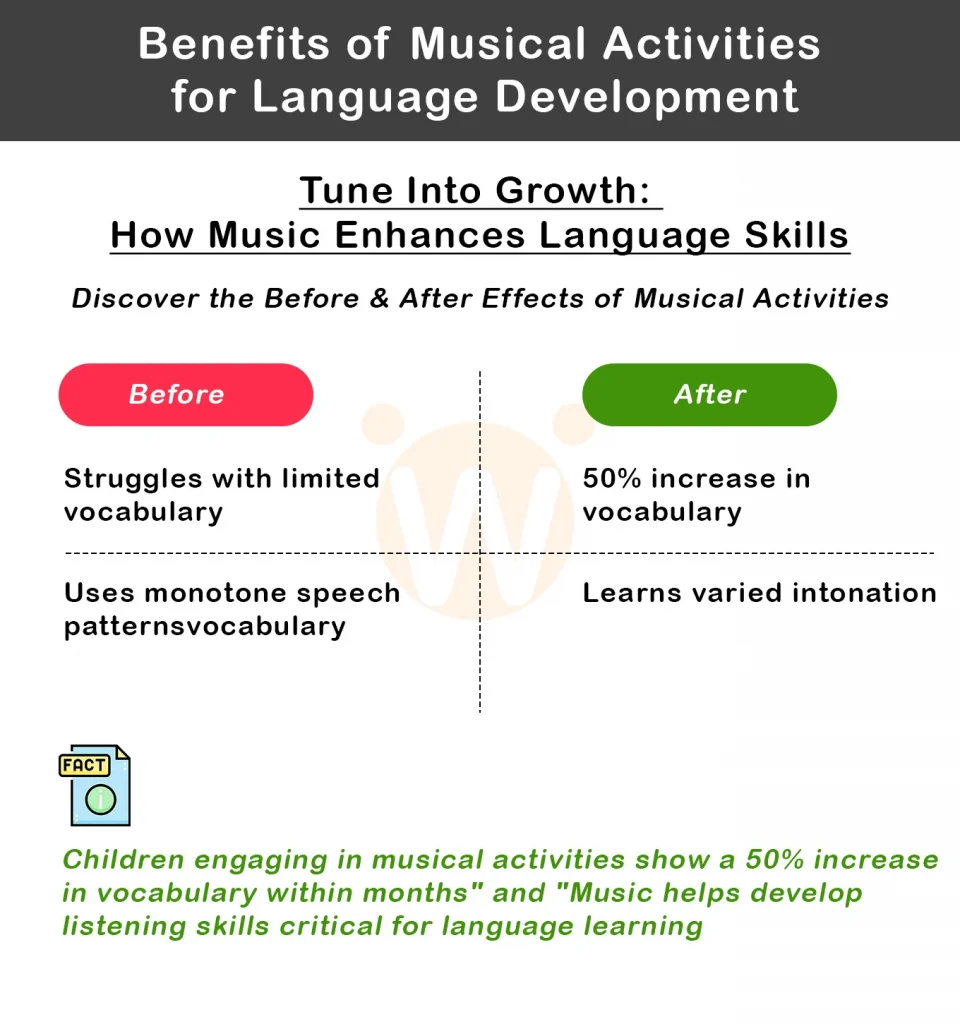
Music and melodies can play a pivotal role in language development. That’s why Sing-Along Sessions are not just entertaining; they’re educational. This activity falls under the umbrella of kids’ language learning games, focusing on enhancing vocabulary and auditory discrimination through the power of song. Encourage your child to learn new songs, paying close attention to the lyrics and rhythms. This can significantly improve their ability to distinguish different sounds, a crucial aspect of language learning. Plus, singing together can be a joyful way to increase bonding, making learning a shared adventure.
To delve deeper into the benefits of music and speech, visit Is Online Speech Therapy Effective?
The Mimic Game
The Mimic Game is a delightful verbal communication game for children that emphasizes the importance of non-verbal cues in communication. This “Monkey See, Monkey Do” activity encourages children to imitate facial expressions and gestures, enhancing their understanding of how we communicate feelings and information without words.
It’s a fantastic way to develop empathy and emotional intelligence as children learn to read and respond to non-verbal signals. This game can be played anywhere, from the comfort of your living room to the great outdoors, making it a versatile option for parents looking to infuse their child’s day with learning and fun.
Both Sing-Along Sessions and The Mimic Game exemplify the innovative ways in which play can be transformed into powerful learning experiences.
Learn about the importance of social cues in communication in Social Media’s Impact on Relationships Explained.
Mirror Magic
A common question among parents is, “How can I help my child improve their language skills?” One enchanting answer lies in the simple use of a mirror during playtime, an activity we like to call Mirror Magic.
This activity encourages children to observe and articulate their own facial expressions and the sounds they make. By playing in front of a mirror, children become more aware of how they express themselves and can experiment with new sounds, words, and expressions in a visual context. It’s a fantastic way for them to see the physical aspects of speech and to practice mouth movements and tongue placements for different sounds.
Mirror Magic is not just about improving speech articulation; it’s also about enhancing self-awareness and confidence in their ability to communicate.
Read our guide on Speech Therapy at Home for more DIY speech therapy activities.
Rhyme Time
Rhyme Time tackles the goal of children’s speech improvement through the delightful world of rhymes. Creating and reciting simple rhymes about daily activities or objects around the house helps develop phonemic awareness, an essential skill for early reading and speech development.
This activity turns mundane routines into engaging linguistic playgrounds. Whether it’s rhyming “cat” with “hat” while dressing up or creating a short verse about breakfast, the possibilities are endless. Rhyme Time encourages children to listen for sounds, match them, and discover the rhythm in language, all of which are critical steps in language acquisition. Plus, it’s an excellent way for families to bond over goofy, spontaneous poetry that brings giggles and learning together.
For parenting strategies that support speech and language development, check out Parenting Styles.
Word Wizardry
In the magical realm of early language learning, Word Wizardry stands out as an enchanting activity that introduces children to the wonders of homonyms and synonyms through playful banter.
This game enhances vocabulary and comprehension by exploring words that sound the same but have different meanings, as well as words with similar meanings. Imagine the delight in a child’s eyes when they discover that a “bat” can be both a creature of the night and a tool for hitting baseballs or that “big,” “large,” and “huge” all paint a picture of size but add their own flavor to a story. Word Wizardry is not just a game; it’s a doorway to understanding the richness of language, encouraging children to play with words and meanings, thereby deepening their linguistic comprehension and expressive capabilities.
Explore the intricacies of language development in Speech and Language Therapy.
Puzzle Pieces
Puzzles are more than just a quiet-time activity; they are a rich resource for speech enhancement exercises for kids. As children pick up each puzzle piece, encourage them to describe it—its color, shape, and the image it contributes to.
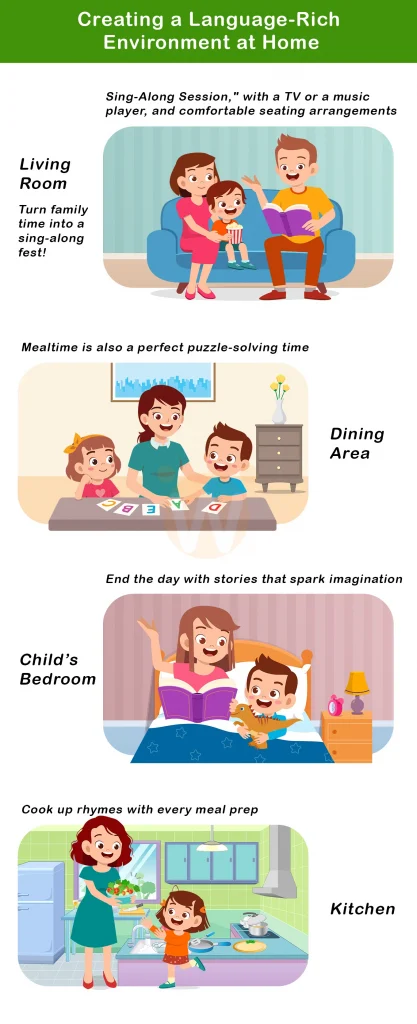
This simple act of description builds vocabulary and honees problem-solving skills, as children must consider where each piece fits within the larger picture. Discussing puzzle pieces and their placement also fosters spatial awareness and critical thinking, essential skills in both language development and general cognition. By integrating language into puzzle-solving, children learn to articulate their thoughts and strategies, turning a solitary activity into a collaborative learning experience.
Discover activities that promote motor skills and language in Home-Based Occupational Therapy Activities.
Tongue Twister Challenge
Tongue Twisters offers a thrilling challenge that goes beyond simple play. Recognized as one of the most effective speech development games, practicing tongue twisters can significantly improve articulation, speed, and pronunciation.
The twisty challenge of saying, “She sells seashells by the seashore,” quickly and correctly helps children become more aware of the nuances of language sounds. This fun activity not only sharpens their speech skills but also enhances their ability to differentiate and produce various phonetic sounds. It’s a playful way to tackle the complexities of language, turning the process of learning into an exciting game that children will be asked to play again and again.
For strategies to overcome speech impediments, explore our article 7 Key Techniques for Overcoming Stuttering.
Karaoke Knights
Karaoke Knights brings the vibrancy of music into language learning, establishing itself as one of the most fun language learning games for children at home. Hosting karaoke sessions with child-friendly songs offers a dynamic way to improve memory, rhythm, and speech patterns.
As children sing along to their favorite tunes, they practice pronunciation, learn new vocabulary, and become attuned to the musicality of language. This activity not only enhances linguistic abilities but also boosts confidence and stage presence, contributing to emotional and social development. The joy of music and the challenge of performing create a perfect blend for engaging and effective language learning.
To further support your child’s language journey, explore our guide on The Crucial Role of Parents in Online Speech Therapy.
Comparative Effectiveness of Activities for Speech and Language Skills
| Activity | Vocabulary Expansion | Pronunciation Improvement | Listening & Comprehension | Creative Expression |
|---|---|---|---|---|
| Animal Sound Safari | High | Medium | Low | Low |
| Storytime With a Twist | High | High | High | Medium |
| Expressive Art Gallery | Medium | Low | Medium | High |
| Color and Shape Detectives | High | Low | Medium | Low |
| Sing-Along Sessions | High | High | High | Medium |
| The Mimic Game | Low | Medium | Medium | High |
| Mirror Magic | Low | High | Low | Low |
| Rhyme Time | High | High | Medium | High |
| Word Wizardry | High | Medium | High | High |
| Tongue Twister Challenge | Medium | High | Low | Low |
| Puzzle Pieces | Medium | Low | High | Medium |
| Karaoke Knights | High | High | Medium | Medium |
Learn more about the right time to start speech therapy in The Ideal Age to Begin Online Speech Therapy: Insights for Parents.
Conclusion
Integrating fun, engaging activities into daily routines is crucial for enhancing children’s speech and language development. These creative tasks, from puzzle-solving to sing-along sessions, do more than entertain; they build essential communication skills in an enjoyable and memorable way. By weaving these activities into everyday life, we not only support effective language learning but also instill a love of discovery and expression in our young ones.
Wellness Hub is dedicated to supporting holistic child development, providing resources and tips to help parents foster their children’s potential. Our commitment is to empower families with the tools they need to guide their children through the journey of growth, ensuring every child has the opportunity to thrive in a nurturing and enriching environment.
Frequently Asked Questions
1. How can fun activities improve my child’s speech and language development?
Fun activities are vital in enhancing speech and language development as they engage children in meaningful and enjoyable learning experiences. Activities like singing, storytelling, and playing games can significantly improve vocabulary, pronunciation, and comprehension by providing practical, hands-on learning opportunities in a relaxed setting.
2. What are some easy speech-enhancing games for kids?
Some easy and effective speech-enhancing games for kids include Animal Sound Safari, Rhyme Time, and the Tongue Twister Challenge. These games encourage children to explore sounds, words, and rhythms, improving their articulation, phonemic awareness, and verbal fluency in a playful and engaging manner.
3. Can music and singing really help with language learning in children?
Yes, music and singing are powerful tools for language learning in children. Karaoke Knights and Sing-Along Sessions, for example, can improve memory, rhythm, and speech patterns. Music helps in learning new vocabulary, understanding sentence structure, and developing auditory discrimination through enjoyable and memorable melodies.
4. How do puzzles support speech and language development in children?
Puzzles support speech and language development by encouraging problem-solving skills and vocabulary building. As children describe puzzle pieces and their placement, they practice using descriptive language, learn new words, and engage in conversations that enhance their linguistic abilities.
5. Are there activities to help toddlers with speech delay?
Yes, activities like Mirror Magic, Joke Junction, and Story Builders are especially beneficial for toddlers with speech delay. These activities encourage toddlers to articulate sounds, understand language nuances, and express their thoughts in sequence, supporting gradual improvement in speech and language skills.
6. What role does storytelling play in language development?
Storytelling plays a significant role in language development by enriching vocabulary, improving comprehension, and enhancing creative expression. Through Storytime With a Twist and Story Builders, children learn to structure their thoughts, understand narrative sequences, and use descriptive language, making storytelling a powerful tool for linguistic growth.
7. How can playing with homonyms and synonyms boost my child’s language skills?
Playing with homonyms and synonyms through activities like Word Wizardry boosts language skills by enhancing vocabulary diversity and comprehension. It teaches children about the complexity and richness of language, helping them understand words with multiple meanings and similar words with different nuances, thereby improving their overall communication abilities.
8. Are there specific activities that improve non-verbal communication in children?
Yes, activities like The Mimic Game and Mirror Magic specifically target non-verbal communication skills. These activities help children understand and interpret facial expressions, gestures, and body language, which are crucial components of effective communication. By imitating and recognizing non-verbal cues, children develop empathy and better social interaction skills.
9. Can language development activities also aid in social development?
Absolutely, language development activities like Joke Junction and Puzzle Pieces not only enhance speech and language skills but also contribute to social development.
10. How does Wellness Hub support parents in enhancing their child’s speech and language development?
Wellness Hub supports parents by offering a wealth of resources, tips, and activities designed to enhance children’s speech and language development. Our platform provides accessible, research-backed information and creative ideas that parents can easily integrate into their daily routines, empowering them to support their child’s holistic development effectively.
About the Author:
Rajini Darugupally
M.Sc., Speech-Language Pathologist (9+ years of experience)
Rajini is a passionate and dedicated Speech-Language Pathologist with over 9+ years of experience, specializing in both developmental speech and language disorders in children and rehabilitation in adults. Driven by a desire to empower each individual to find their voice, Rajini brings a wealth of experience and a warm, genuine approach to therapy.
Currently, at Wellness Hub, she thrives in a team environment that values innovation, compassion, and achieving results for their clients.
Connect with Rajini to learn more about how she can help you or your loved one find their voice.
Book your Free Consultation Today
Parent/Caregiver Info:
Client’s Details:
* Error Message
